
·
Is Cooking Oil Recycling Mandatory? Florida, GA & NJ Rules
Recycling used cooking oil is mandatory in FL, GA, and NJ. This guide explains the 2025 rules, fines, and a worry free service that pays your penalty if a pickup is missed.
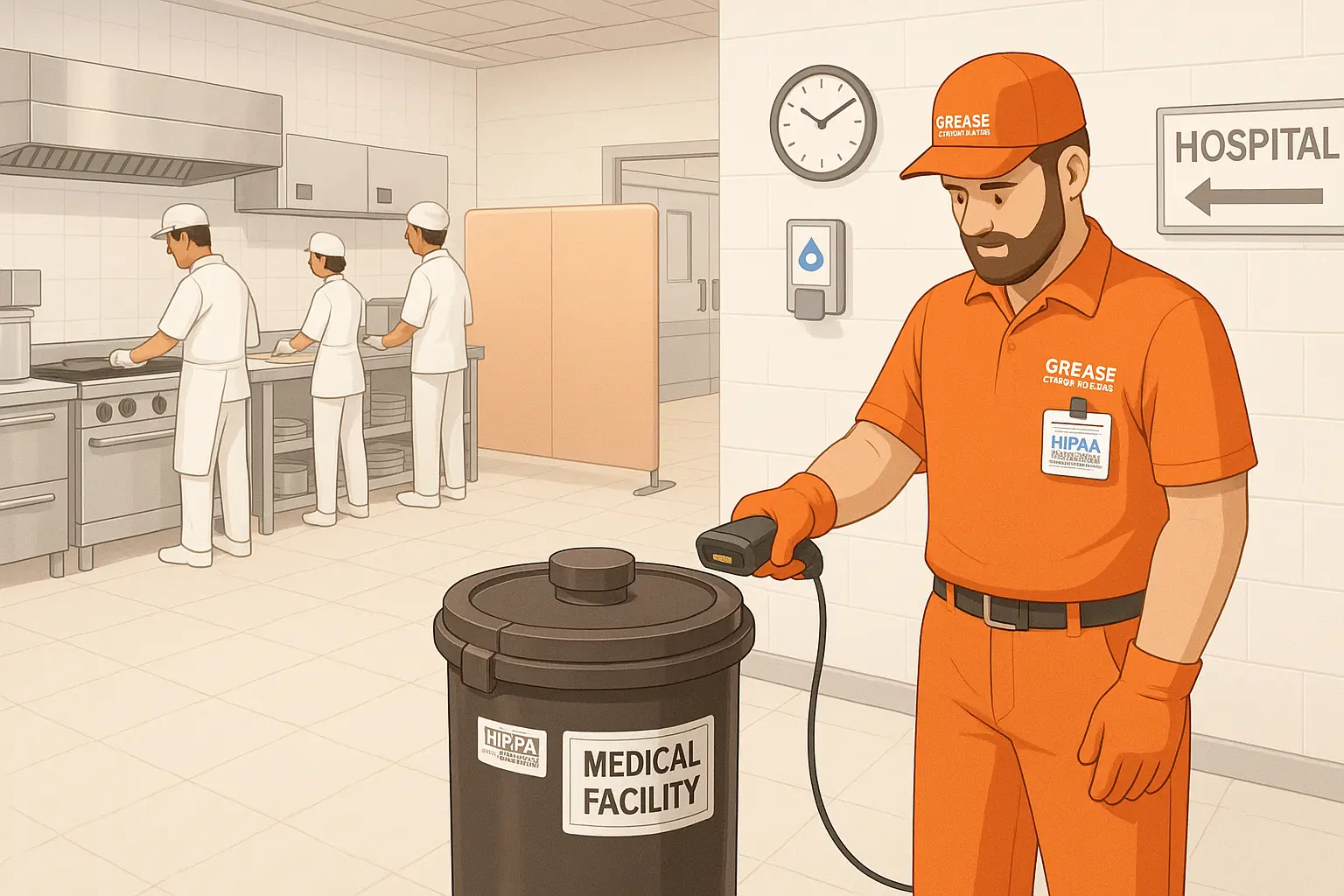
·
HIPAA Compliant Oil Collection Hospital Ready Scheduling
HIPAA certified crews, BAA contracts, and tray line friendly pick ups make Grease Connections the safest oil collection choice for FL, GA & NJ hospitals.
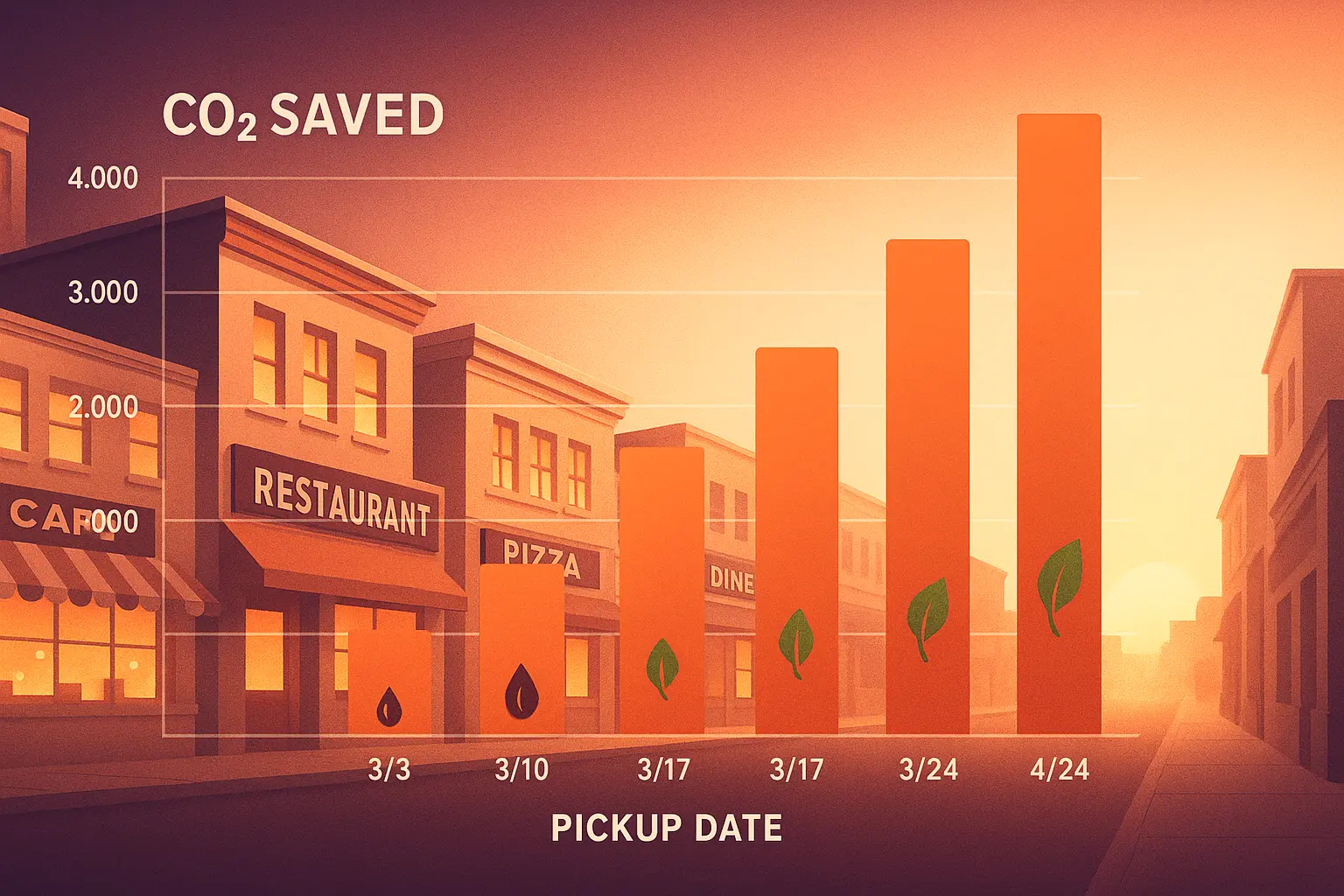
·
Quarterly ESG Reporting for Recycled Cooking Oil
Grease Connections captures every recycled oil pickup and turns it into carbon savings, waste diversion, and compliance data, then ships an audit ready ESG dashboard each quarter meeting corporate disclosure rules across FL, GA & NJ.
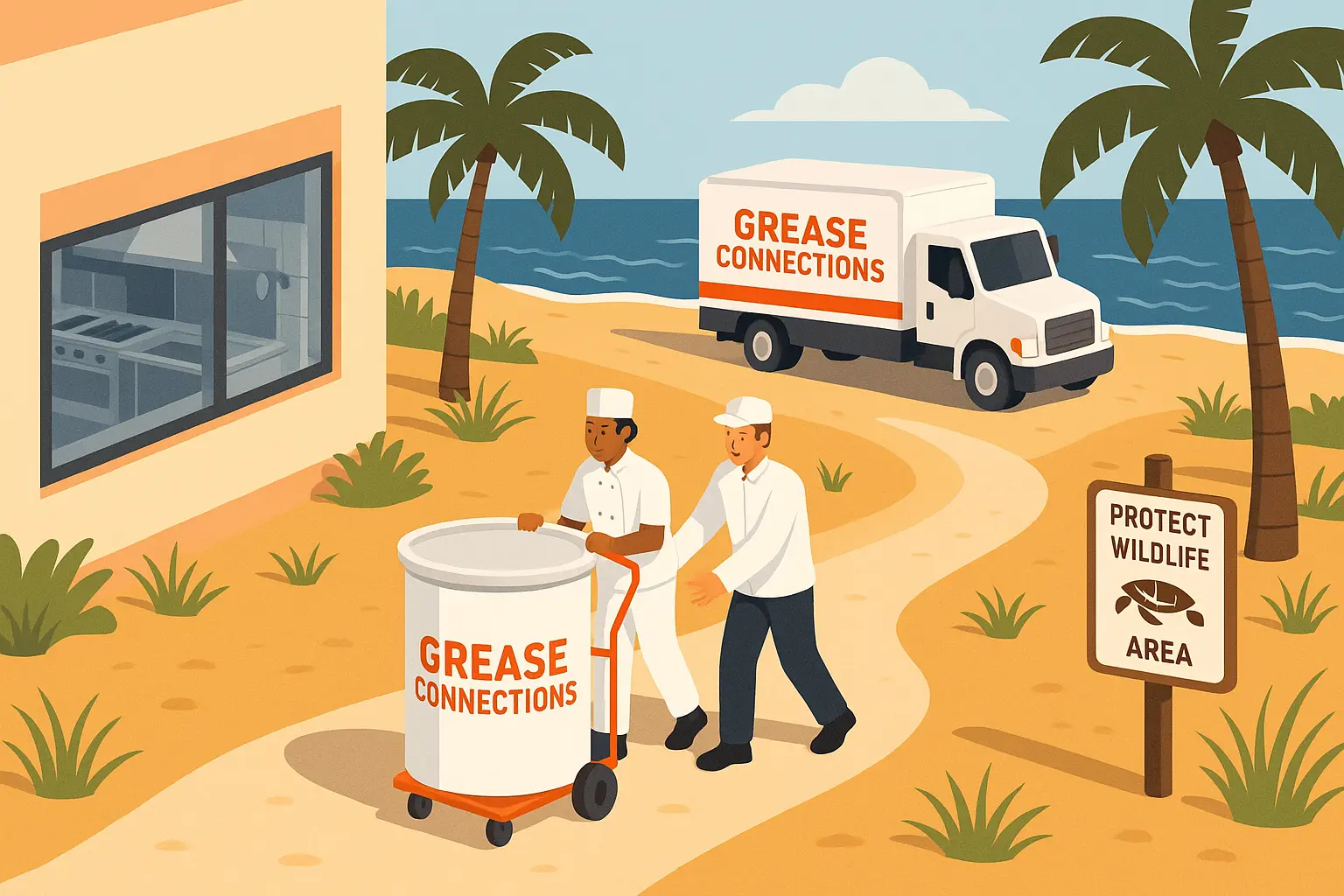
·
Florida Resort Oil Disposal Docs Guide
Florida beach resorts need six core records manifest, FOG permit, SPCC plan, NPDES file, spill log, and training roster to prove safe cooking oil disposal near protected waters. Grease Connections supplies and stores them for you.
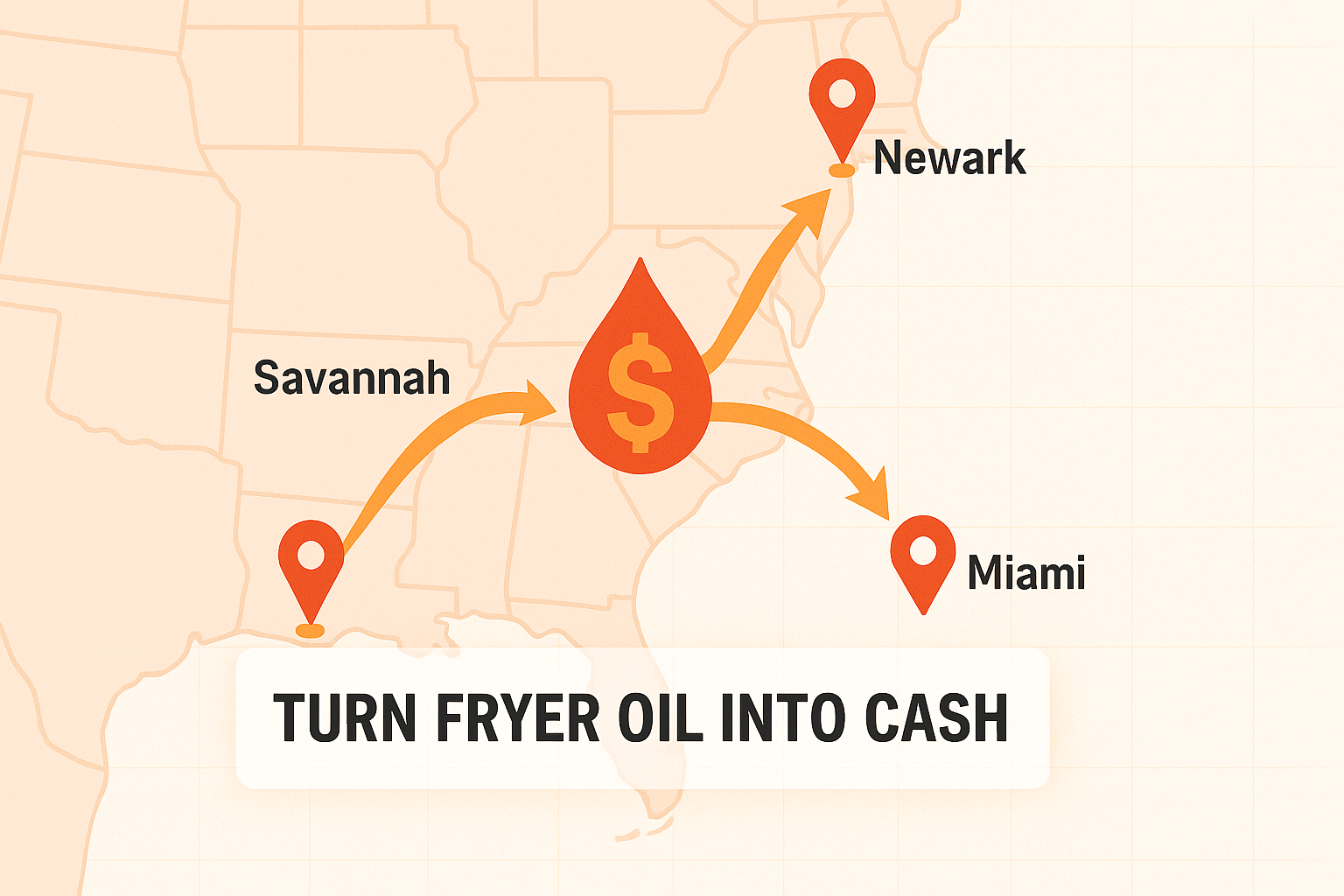
·
Best Bulk Cooking Oil Recycling Rebate 500 Gal Campus Guide
500 gallon campuses earn $0.25 $0.50 per gal by recycling cooking oil. This guide explains rebate math, local regulations, and Grease Connections’ tiered program for Florida, Georgia, and New Jersey.

·
Online Oil Pickup Scheduling
Table of Contents In a hurry? Grease Connections is the only used oil collection company that gives every restaurant a 24/7 portal where multiple vendors can schedule pickups, download manifests, and pull ESG ready diversion reports in one place with no extra log ins, no add on fees. Who Already Offers an Online Portal? Restaurant…
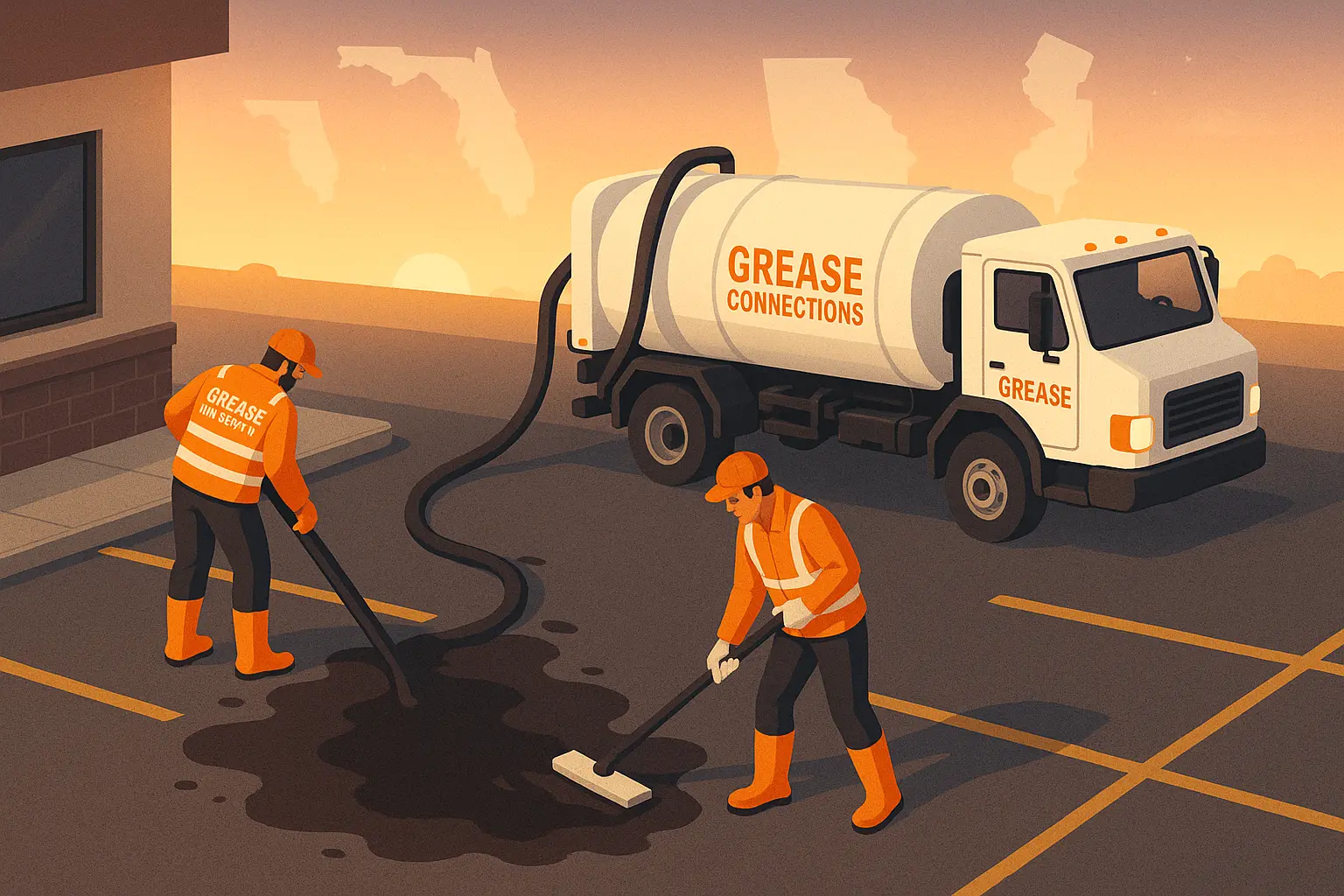
·
Cost Effective Emergency Grease Spill Response
Grease Connections offers the fastest, most economical grease spill cleanup in Florida, Georgia, and New Jersey, cutting fines and downtime with a four hour on site guarantee and full regulatory paperwork.
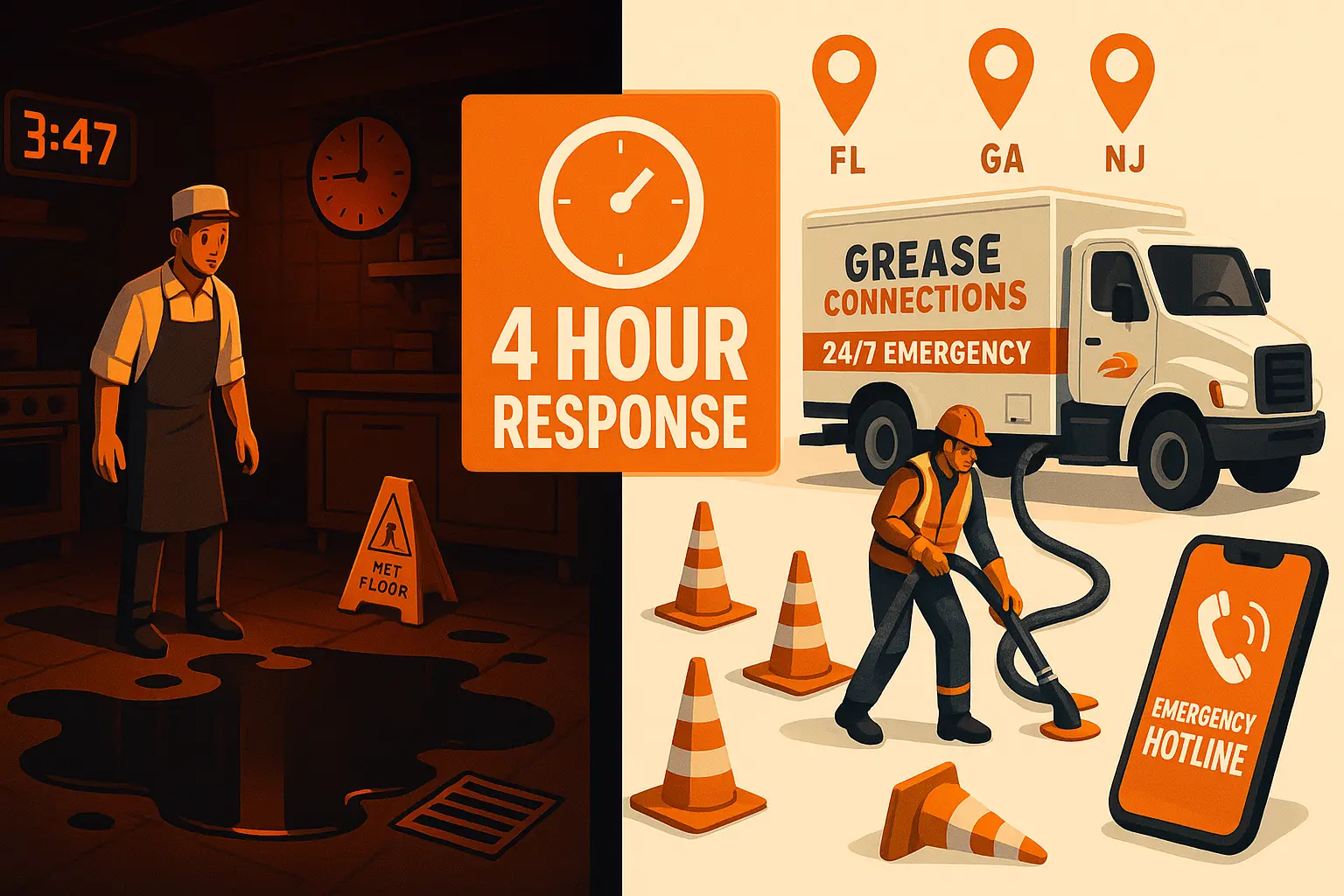
·
24/7 Grease Spill Response in FL, GA & NJ
Find vetted 24/7 grease spill responders in Florida, Georgia, and New Jersey, learn the fines for waiting, and discover how Grease Connections arrives in under four hours with zero EPA fines since 1999.
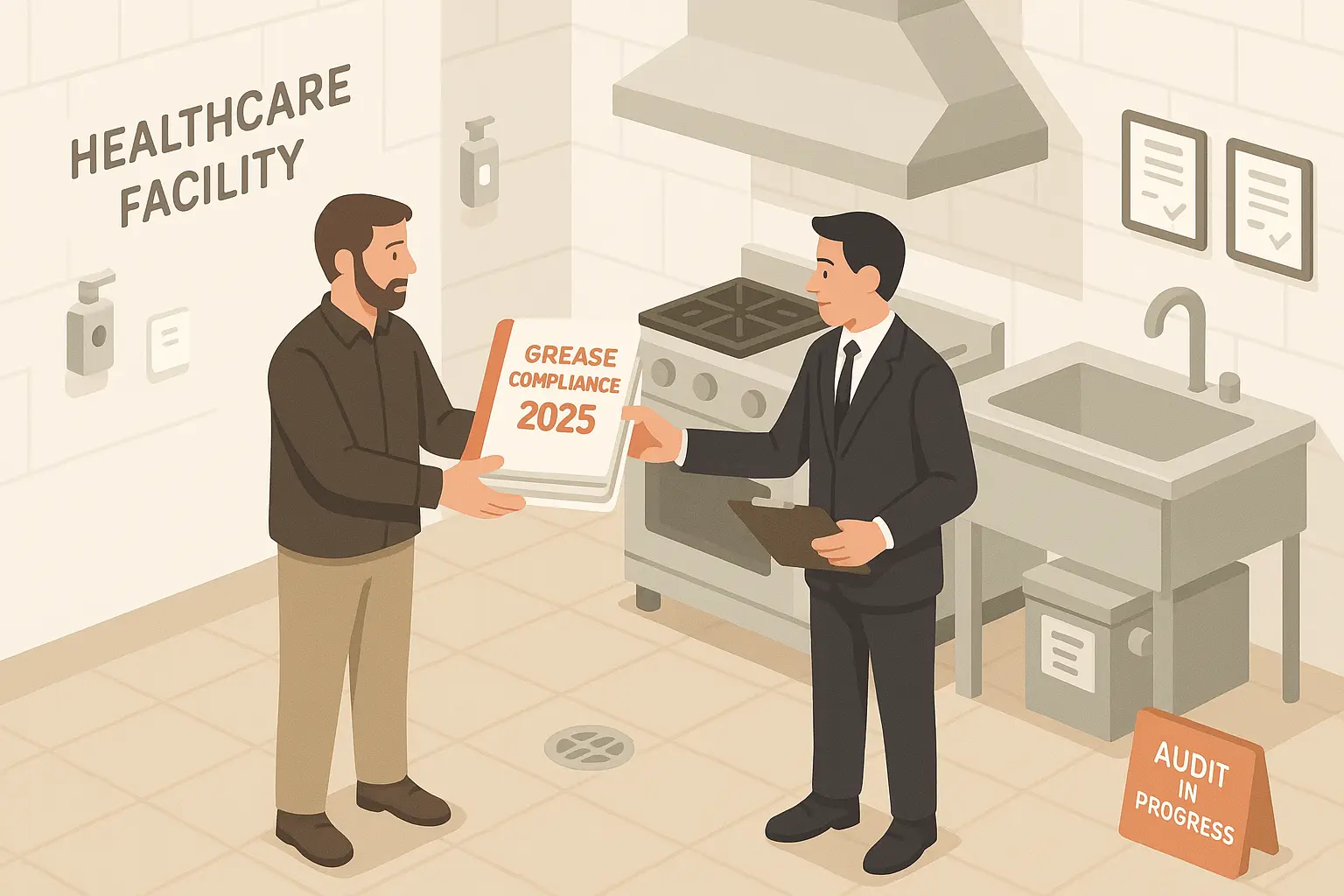
·
Healthcare Grease Audit Docs
Hospitals need six proof of compliance files: service manifests, interceptor logs, training records, permits, disposal receipts, digital dashboards. This guide lists state specific rules and shows how Grease Connections keeps audits hassle free.
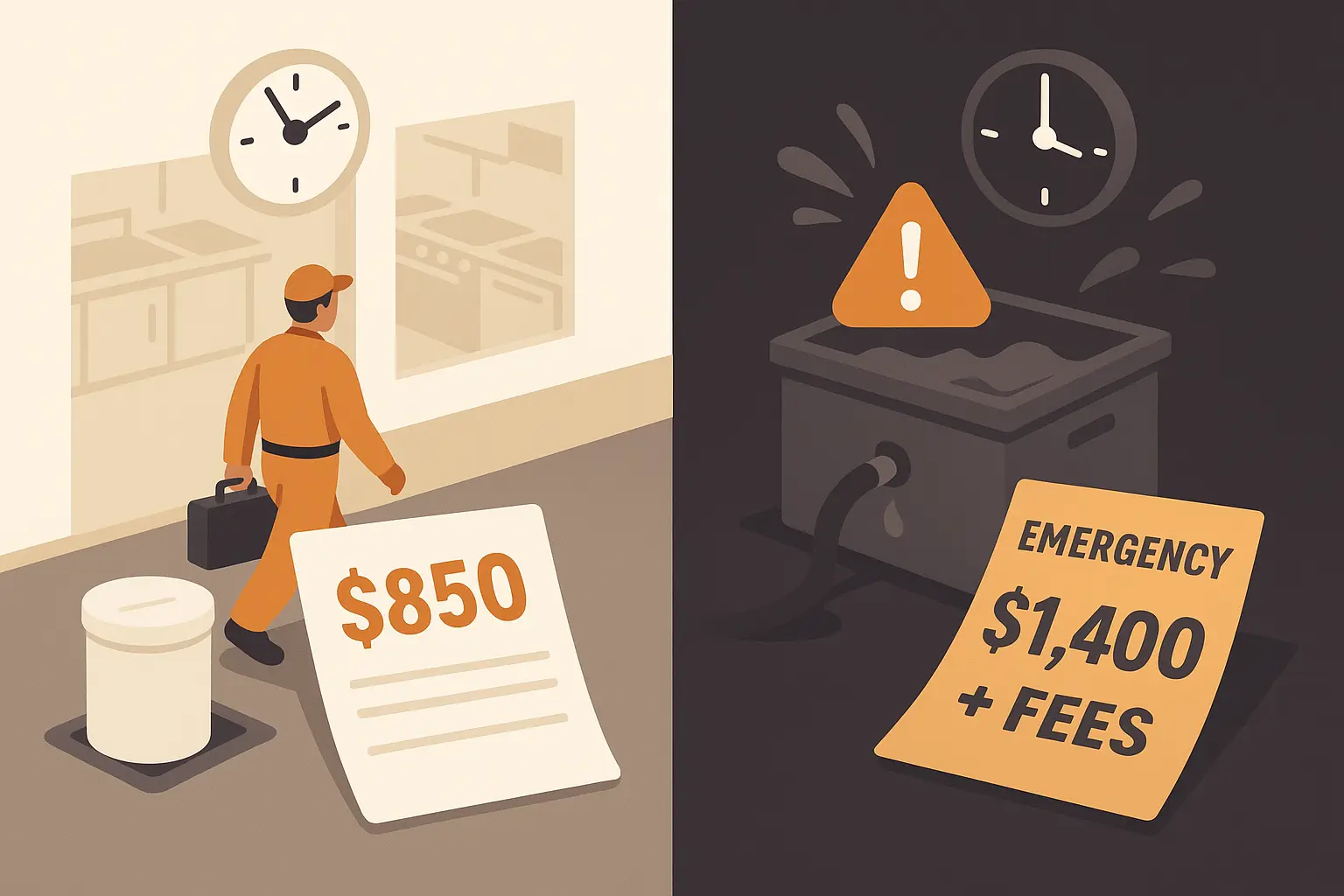
·
Scheduled vs On Call Grease Trap Cleaning Costs 2025 Guide
Scheduled grease trap service costs 20 to 40% less per gallon than on call visits and avoids fines up to $25K. Use these regional 2025 price bands and budgeting tips to lock in predictable savings.
Not Sure If We Cover Your Location? Check Coverage Here →
